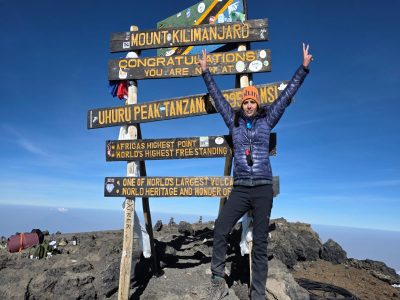We are looking for love in the strangest places but one day it might just vanish without a trace. Here’s how to find it in safer places
Love is a victim. I don’t mean the act of love. I mean the word love. It is a victim to mostly ill- composed paeans by melancholic youths to silent fair maidens. It is a victim of countless men and women losing their faith in it after the initial kick to their brain chemistry has faded. It is a victim of laziness. Of covetousness. Of envy. Of consumption. Of hedonism. Of boredom. Of fear. Mostly, it is the victim of the expectation from it to be this continuous analgesic to dull the pain embedded in the act of living out a human life.
Romantic love is that gossamer spider web on a warm summer day. Sparkly and delicate, only to last for a short shimmering while. Anyone in its grip will testify to the heady power of that gush of affection that can fill one’s day with roses and honey. The world narrows down to the singular focus on the object of one’s desire. You literally cannot get them out of your head.
The spectacular crescendo of emotions that such romantic love begets, will also soon usher in the descent of this tidal wave in an equally dramatic fashion. Suddenly, one day, just like that, the spark mellows out. Without a sound. The rest of the world starts returning to the field of vision and it is disorienting to all parties involved. What once was, ceases to exist. It is hard to believe that it ever existed. Something this ephemeral surely cannot be the nature of love?
What does anyone really understand of love? The verb, that is. In the mammalian world, survival is entirely dependent on collaboration, cooperation and community. Right from birth. A wee infant must gain the cooperation of its mother to feed it and care for it so that it may survive. The impulses to feed it and care for it are embedded in the neural circuitry of the woman who has birthed it and by proxy to her partner caregiver as well.
As the child grows older, this immediate survival-based care from the parents is replaced by the training of this fledgling adult-in-waiting to adapt to the rules of its particular community and circumstance. Speech, manners, value systems, quirks. As the child becomes an adult, community mores orient him or her towards starting his or her own family and care for ageing parents as well. Can we call this love then? Perhaps. But, pure love in the sense of a voluntary act free from any survival-based transactional exchange? Maybe not.
Most love that we are surrounded by seems to be simply conditioned conditional love. Like fiat money that makes the world go round. As children, nice manners, compliance with rules, being a sincere student yields approval, applause, gifts, all symbols of love. As adults, being wealthy and holding a prestigious position in society yields approval, respect, admiration, again all symbols of love. Even those who crave power or massive amounts of wealth are actually craving for the reactions of those around them or from their pasts. So, again, seeking love in the form of attention. Love is the veritable reward in a Pavlovian societal construct. With everyone being a seeker, who is giving this attention? This love that is being sought?
Looking outward for love in a sea of all others seeking like oneself, one may not find what one is looking for ever. Or one may find it and lose it. To death or circumstance. Perhaps, a different direction is the answer to this seeking. One that guides inwards. Each morning, I wake at 7, gather my wits about me and start my working day. I rush about, commuting to and fro, doing tasks, talking to people, laughing with family and friends. The day spins around its axis at lightning speed. This is probably true of most people.
But, every so often, I catch the last rays of the setting sun reflect off the side of a glass building, feel cooling breeze around my elbows, hear the last few strains of an old song on the radio, or the smell of frying onions and the world slows down. And I am enveloped by this feeling of perfect clarity. I am in love at that moment. I am in love with the act of being. The moment does not need anything from me, nor me from it. We are two lovers who have met after a long gap of time and we are happy just existing near each other.
Though fleeting, this experience burns brighter than most others and I remember it for many days. This act of simply being. Maybe, this then is the original form of love. To allow the moment to be. The Sufi mystic Rumi once wrote, ‘But listen to me. For one moment, quit being sad. Hear blessings dropping their blossoms around you’. Maybe then love is not so much a verb or a noun, and is more a state of being. Conditioned as we may be, that we must be worth something to be worthy of love or that love will come in this form or that form, this simply may not be true. Everyone who seeks love, is perhaps surrounded by the real thing. In the ordinariness of each day, of the many small bits and bobs of one’s life, in the shade of a tree, in music, in art, in the velvet centers of jaswandi flowers, in deep breaths and light steps.
The giver of this love, then, is your own self. The experiencing self. One that cannot be tagged and boxed away into the many micro confines of what one’s culture or country would deem most suitable. One that cannot be tamed away from its rustic beauty loving origins. Under all the transactional conditioning, under all that thirst for approval, all of us have the key embedded deep within. It is a daily act to distill this love into one’s life and find that it makes it easier to bear everything else. All one has to do is to allow this state of being to occur. To tap into its expansive energy. Some may find it accessible through meditation, talking a leisurely walk, writing or simply watching the sun set. It is always available, within reach. Your own experiencing self is one worth making best friends with and not be frightened of.
In our darkest moments, one must endeavor to remember this and return to one’s centre with compassion. One is not alone. One is not unloved.
Man travels the world over in search of what he needs and returns home to it.





